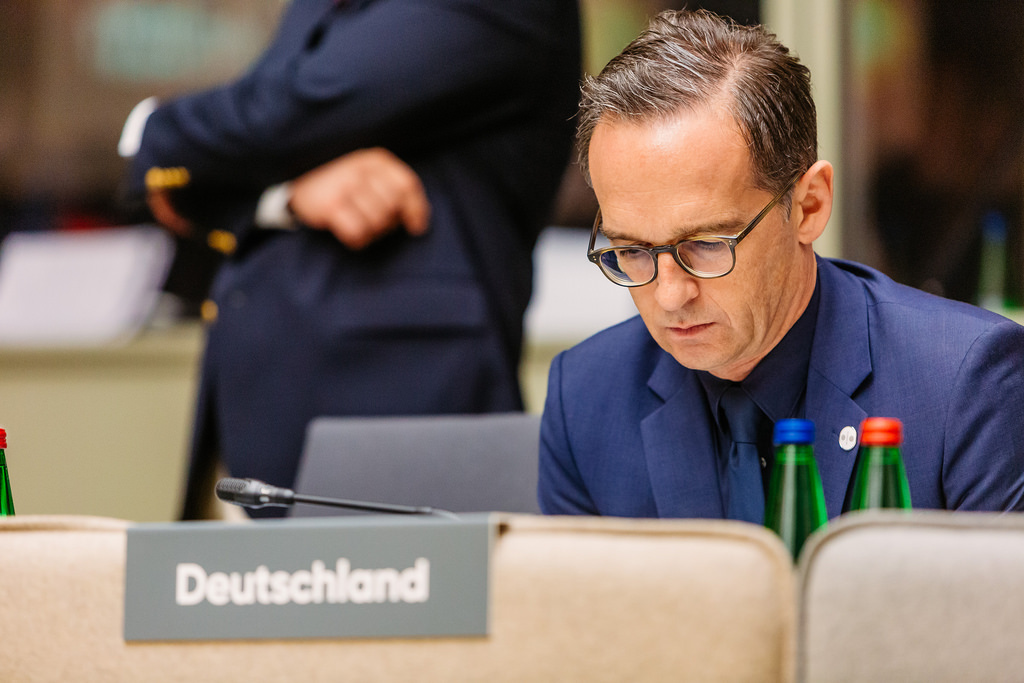Germany says EU will impose new sanctions on Belarus
Germany's foreign minister said on Friday the European Union will impose new sanctions on Belarusian officials responsible for cracking down on protests triggered by a disputed election last Sunday.

- Country:
- Germany
Germany's foreign minister said on Friday the European Union will impose new sanctions on Belarusian officials responsible for cracking down on protests triggered by a disputed election last Sunday. President Alexander Lukashenko claimed victory but now faces the biggest challenge to his 26-year rule.
Momentum was growing in favor of sanctions in emergency discussions among the 27 EU foreign ministers on Friday. An EU diplomat said the gathering decided to instruct their foreign policy unit to prepare a list of individuals to be blacklisted, marking a first step towards new sanctions. "What happened in Belarus in the last few days is completely unacceptable and calls for a clear reaction of the EU," Germany's Heiko Maas told reporters.
"We aim to put certain persons who are known and took part in crimes against peaceful protesters under the EU sanctions regime." At least six other EU states are broadly in favor. While Austria, Sweden, and Germany lead the hawkish camp, Poland, the Czech Republic, Denmark and the Baltic states have also called for mediation between Lukashenko and the opposition.
Hungary is the leading sceptic on sanctions, which require unanimity of all the EU countries to be agreed. Diplomats said, however, Budapest would likely agree to a narrow list of people who would be barred from traveling to the EU and forfeit any assets they have in the bloc as soon as later this month - rapid by EU standards.
The EU first imposed sanctions on Belarus in 2004. It tightened them in 2011 over abuses of human rights and democratic standards, including vote rigging. Many were lifted after Lukashenko released political prisoners in 2016. But an arms embargo remains, as do sanctions on four people over the unresolved disappearances of two opposition activists, a journalist and a businessman years ago.
NEW SANCTIONS Lukashenko denies electoral fraud. His government freed many detained demonstrators on Friday after issuing a rare public apology as opposition leader Sviatlana Tsikhanouskaya called for an election recount.
Maas called on the Belarus governnment to release political prisoners and review the official election result, which gave Lukashenko 80%, triggering protests in which security forces beat demonstrators and arrested several thousand people. Polish Foreign Minister Jacek Czaputowicz said EU officials would now work on an exact blacklist of Belarusian individuals involved in the voting process and responsible for the violence.
"We... need to find a careful balance between pressure against and engagement with Belarus President Lukashenko. We believe the EU should assume the role of a mediator as soon as possible," he also said in a joint letter with five other peers, which was seen by Reuters ahead of talks among the 27. Warsaw is wary of any repeat of the 2013/2014 street protests in Kyiv, which the EU and the United States supported and Russia then used as an excuse to annex Crimea from Ukraine before backing separatists in the east of the country.
(This story has not been edited by Devdiscourse staff and is auto-generated from a syndicated feed.)
ALSO READ
Russian forces enter suburb of Chasiv Yar in Ukraine, says RIA
Russia says concert shooting may be linked to operation in Ukraine, TASS reports
Ukraine fires more than 50 drones against Russia in one of its biggest air attacks of the war
Ukraine says fighting rages near Chasiv Yar, but denies Russia reached suburbs
Ukraine says it downed 13 drones launched by Russia overnight










